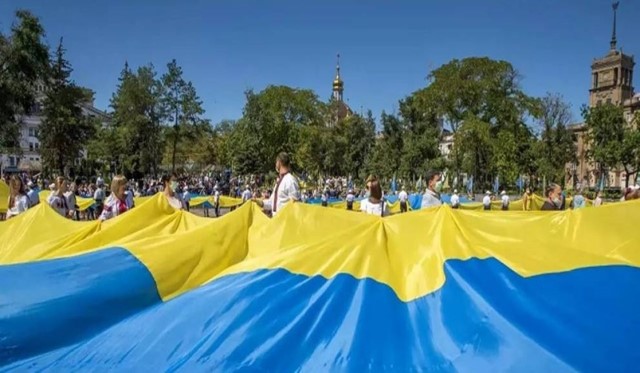Bank commissioned to assess the damage, loss, and needs for the city’s revival
UKRAINE: The European Bank for Reconstruction and Development (EBRD) is paving the way for the future rebirth of Mariupol, by supporting efforts to quantify the destruction that the city has suffered in Russia’s war on Ukraine and to assess the cost of Mariupol’s revival.
The EBRD has signed a memorandum of understanding with the city’s authorities on commissioning a ‘Damage, Loss and Needs Assessment Report’, which will examine the war’s impact on its infrastructure and estimate the financial cost of restoring it.
The report will form the basis of the city’s Mariupol Revival Strategy, which will include key cost estimates and attract potential investors and donors to rebuild the city after its full liberation.
Under the agreement, signed in Warsaw today by the Mayor of Mariupol Vadym Boichenko and EBRD Deputy Head of Ukraine Mark Magaletsky, the EBRD will lead the preparation of a report that examines the damage inflicted on public transport, water and sanitation, solid waste management and public lighting in the city.
These sectors are vital to safeguard livelihoods and have benefited from extensive support from donors and international financial institutions in the past.
The EBRD is working closely with the World Bank Group to ensure that the report complements the latter’s countrywide Rapid Damage and Needs Assessment for Ukraine.
The report will incorporate lessons learned from previous similar assignments undertaken by the World Bank. This highlights the importance of adopting a coherent and coordinated approach among international stakeholders when it comes to damage assessment and to planning for city revival.
The port city, part of the Donetsk region, has been severely damaged in Russia’s invasion and a two-month battle for control over Mariupol. It is currently occupied by Russian forces.
The city’s authorities, who now operate from Ukrainian-controlled territory, do not have the resources to finance or the capacity to implement a project of such complexity and have sought support from the EBRD.
“The EBRD is a reliable partner of Mariupol and right now the support from an old friend brings us closer to our common goal on the path of rapid revival for the city after de-occupation,” said Mayor Boichenko.
“Mariupol was once a thriving, green, port city and an important EBRD client. We are proud to stand together with the city’s authorities and play a crucial role in building the foundation for its future revival once Mariupol is free again. The EBRD is absolutely committed to supporting Ukraine with its post-war recovery,” said Mark Magaletsky, EBRD Deputy Head of Ukraine.
The city is a longstanding client of the EBRD. It joined the EBRD Green Cities program in 2020 and, before the war, worked with the Bank to implement a number of important green projects in municipal infrastructure sectors, including public transport, energy efficiency in public buildings, and municipal management of solid waste.
The EBRD is the largest institutional investor in Ukraine and has committed to investing €3 billion in 2022 and 2023 to address the Ukrainian economy’s challenges following Russia’s invasion. The EBRD is prioritizing trade finance, energy security, vital infrastructure, and food security and providing liquidity to pharmaceutical companies. Investments in all areas will involve risk-sharing with partners such as the European Union, the United States of America, and the United Kingdom.

